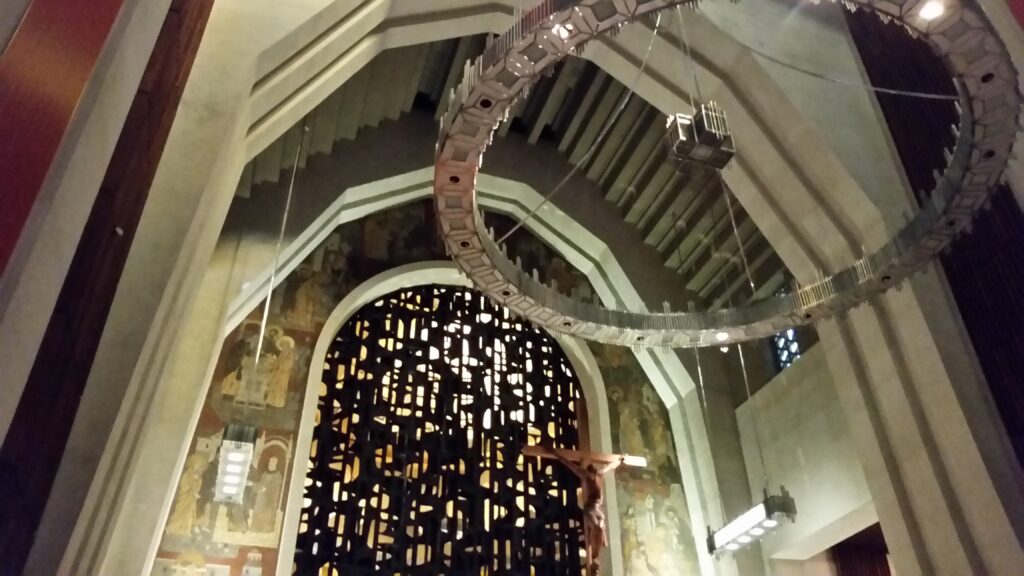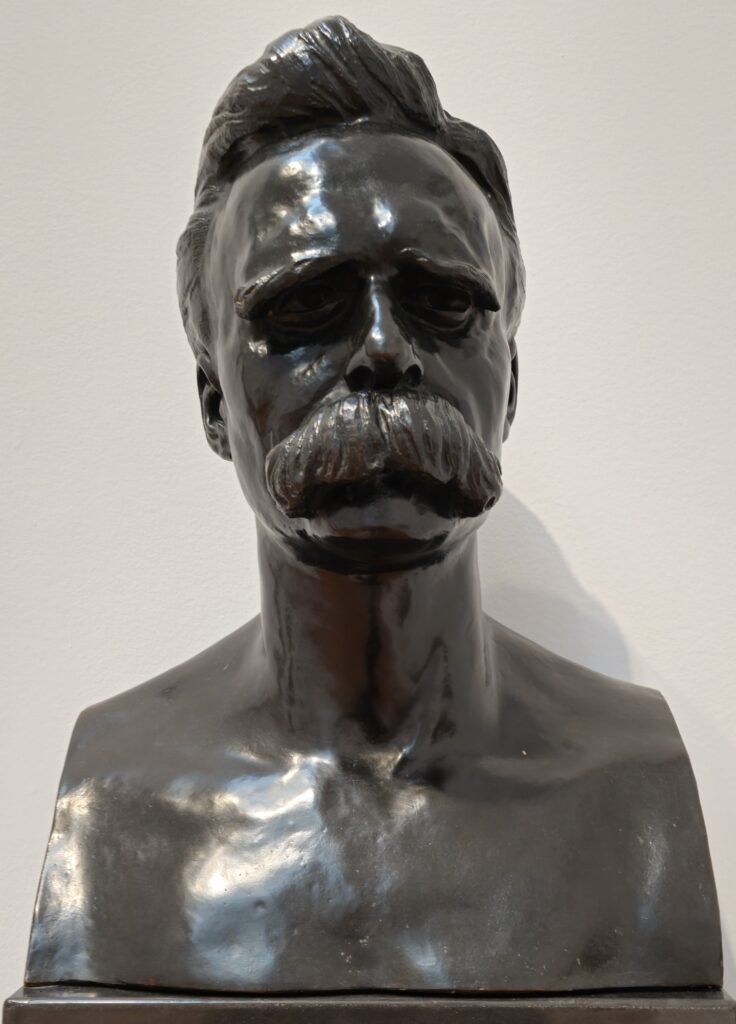
Step Out of the Shadows
Are you caught in a story, the same weary play,
Where Victims, Persecutors, and Rescuers stay?
Do patterns of conflict seem bound to repeat,
And peace feels a stranger you’re longing to meet?
Step out of the triangle, leave roles behind,
Discover the freedom that God has designed.
In courage and healing, your heart can be whole,
For love is the purpose, and grace is the goal.
Dr. Tranquil
Breaking Free: Discovering Peace Beyond Drama
Does drama seem to follow you everywhere you go? Do you find yourself in relationships and situations where emotions feel overwhelming, people misunderstand each other, and problems seem impossible to escape? For many, these struggles feel inescapable, but they often stem from deeper patterns formed in childhood and reinforced by painful experiences. Through the lens of faith, we know that God desires healing and freedom for us, inviting us to live a life of peace, love, and purpose. But to reach this life of freedom, we first need to understand the roots of our behaviors and the emotional patterns that hold us back.
One of the most impactful frameworks for understanding these struggles is the Karpman Drama Triangle—a model that describes three roles people often adopt when they’re stuck in dysfunctional patterns: the Victim, the Persecutor, and the Rescuer. These roles can become so ingrained that they shape how we see ourselves, others, and even our future. In moments of stress or emotional pain, it’s easy to slip into one of these roles, believing it will protect us. Yet, these roles actually prevent us from healing and moving forward. They keep us distant from the peace and wholeness God wants for us.
Understanding and breaking free from these patterns means facing emotions we may have been taught to ignore or suppress. Many of us grew up in environments where it wasn’t safe to talk about our feelings, where trust was broken, or where we learned that vulnerability would lead to hurt. These lessons created the “three golden rules” of dysfunctional family dynamics: don’t talk, don’t trust, and don’t feel. While these rules may have protected us at one time, they ultimately lead to a life where we don’t feel safe, our relationships become strained, and we lose hope for the future.
But with God’s guidance and through a deeper understanding of ourselves, we can begin to rewrite this story. By exploring the Drama Triangle and identifying our personal tendencies, we can learn how to step out of these destructive roles and find healthier ways to connect with others and with God. The Bible reminds us in Romans 12:2, “Do not conform to the pattern of this world, but be transformed by the renewing of your mind.” As we examine these patterns, we can renew our hearts and minds, setting down the weight of these roles and embracing a life that reflects the love, grace, and wholeness that God calls us to.
As you explore these topics, allow yourself to look inward with compassion and faith. Healing is a journey, and it requires patience, grace, and, most importantly, an openness to God’s transforming power. With each step, you are moving closer to the peace, joy, and freedom that God intended for you.
Childhood Environments and Emotional vs. Cognitive Intelligence
Have you ever felt like handling emotions is a struggle, or that certain feelings can feel overwhelming, confusing, or even out of place? Many of us experience this, especially if we grew up in homes where emotions were not openly discussed, understood, or nurtured. Just as a tree planted in rich, healthy soil grows tall and strong, our early years are the “soil” that nurtures the foundation of who we are. In a loving, supportive home, we naturally develop this strong foundation, which helps us face life’s challenges with resilience, faith, and emotional balance. But for those who grew up in unstable or dysfunctional homes, that foundation may have cracks, making it difficult to stand firm in life no matter how much we try to rebuild.
In these formative years, God designed us to begin developing two kinds of intelligence that work together: cognitive intelligence (our ability to think, reason, and solve problems) and emotional intelligence (our ability to feel, understand, and manage our emotions). Together, these give us the balance to face life with wisdom and grace. Cognitive intelligence is often what we strengthen in school, at work, or through learning new skills. Emotional intelligence, however, is built largely through safe, healthy relationships in our childhood. When we are shown love, given guidance, and feel safe to express ourselves, our emotional intelligence grows. This means we learn to identify our emotions, feel our way through them, and respond to others with empathy and compassion.
But what happens when our upbringing didn’t nurture this emotional growth? If our early environment was filled with chaos, conflict, or emotional neglect, we may have learned to rely solely on our cognitive intelligence to manage life. We focus on “thinking” our way through situations—analyzing, problem-solving, and even avoiding emotional responses because feelings didn’t feel safe. Emotional intelligence may not have had a chance to fully develop because it felt dangerous to experience or express feelings. As a result, many of us enter adulthood feeling equipped to think but struggling to feel, connect, and respond to our emotions in healthy ways.
This dynamic can lead to internal conflicts, confusion, or difficulty in relationships. Without a solid foundation in emotional intelligence, we may feel out of place in social settings, overly dependent on logic to solve emotional issues, or even disconnected from ourselves and others. God calls us to love Him and others with all of our heart, mind, and soul—emotional intelligence is part of this calling. When we live without it, we may struggle with feelings of unworthiness or a sense that something is “missing.”
As we begin this journey of understanding our emotional foundation, let’s reflect on Proverbs 4:23: “Above all else, guard your heart, for everything you do flows from it.” This verse reminds us that the heart—our emotional core—needs care, attention, and intentionality. God designed us to live from a place of wholeness, with our emotions in balance, so that we may be a blessing to ourselves and others. To truly “guard our heart,” we must take a closer look at our emotional foundations, asking ourselves where the cracks might be. Was I encouraged to feel my emotions? Was I taught to understand them? Or did I learn to avoid, suppress, or fear my feelings?
Understanding how our childhood environments shaped our emotional lives is the first step to repairing any cracks in our foundation. Healing is a process of growth, just like a plant reaching for sunlight. When we start to acknowledge where emotional support was missing, we can ask God to help us build a stronger, healthier emotional foundation. God is with us in this process, guiding us to a place of peace, resilience, and faith. Through His love and grace, we can start to reconnect with the emotional intelligence He intended for us, embracing all aspects of ourselves with compassion and a sense of purpose. This journey is not only for ourselves but allows us to better love and connect with others, as God commands us to do.
In taking these steps, we are answering God’s call to live in wholeness, with both heart and mind working together in harmony.

Roots of Reflection: Growing Toward Love and Wholeness
Roots cling to dry ground,
a child bends where shadows fall,
yearning to feel warmth.
In rocky soil bound,
leaves learn silence over song,
seeking unseen strength.
Silent hearts endure,
trained to think but not to feel,
a lesson of survival.
Yet light waits beyond—
new roots reach for softer earth,
where love heals the cracks.
Through warmth and nurture,
the heart grows whole, branches rise,
a foundation blessed.
Dr. Tranquil
The Three Golden Rules of Dysfunctional Families and Their Impact
In a loving, healthy family, we learn to communicate, to trust, and to feel—foundations that allow us to grow emotionally and spiritually. But in dysfunctional environments, there are often unspoken rules that restrict us, creating patterns that echo through our lives. These patterns, which we call the “three golden rules” of dysfunctional families, often shape how we relate to ourselves, to others, and even to God. These three rules are “Don’t talk,” “Don’t trust,” and “Don’t feel.”
Let’s break these down to understand how they impact us deeply.
Don’t Talk
In a dysfunctional family, open communication is often limited or discouraged. Emotions, conflicts, or family issues are not discussed openly. The message is clear: speaking up may lead to punishment, shame, or rejection. When we’re taught not to talk, we begin to feel like our voice doesn’t matter. We learn that our thoughts and feelings are invalid or even dangerous to express, and we stop sharing our true selves.
This unspoken rule creates a negative view of ourselves because it teaches us that our inner world—our emotions, opinions, and needs—are somehow wrong or unworthy of expression. In adulthood, this often leads to low self-esteem and a sense of unworthiness. It can even affect our prayer life, as we may struggle to open up to God, thinking our thoughts and feelings are “too much” or unimportant. But God invites us to bring our whole selves to Him, assuring us in 1 Peter 5:7 to “cast all your anxieties on Him because He cares for you.” Understanding this promise can help us begin to break free from the “don’t talk” rule, realizing that our voice matters to God.
Don’t Trust
The second rule, “Don’t trust,” teaches us that people, even those close to us, may not be reliable or safe. This lesson can come from experiences of betrayal, abandonment, or inconsistency from caregivers who may have struggled with their own challenges, addictions, or emotional wounds. When trust is constantly broken or discouraged, we internalize the message that it’s safer to rely only on ourselves.
This rule creates a negative view of others, leading us to believe that people are ultimately untrustworthy and that relationships are a source of potential pain rather than joy. As adults, we may find ourselves struggling with closeness, avoiding vulnerability, or feeling guarded in relationships. This impacts our ability to build healthy, fulfilling connections with others, and it can even affect our relationship with God. When trust has been broken repeatedly, it’s natural to wonder, “Will God really be there for me?” Yet, Scripture reminds us in Proverbs 3:5-6, “Trust in the Lord with all your heart and lean not on your own understanding.” Part of healing this rule is learning to trust, both in God’s unfailing presence and in others who have shown themselves to be safe and supportive.
Don’t Feel
The third rule, “Don’t feel,” often emerges in families where emotions are dismissed, punished, or ignored. We may have been told to “toughen up” or “stop crying,” which teaches us that emotions are either a sign of weakness or something shameful. Over time, we learn to disconnect from our feelings, pushing them down or ignoring them entirely.
This rule leads to a negative view of the future because when we shut down our emotions, we lose an essential part of ourselves that connects us to hope, joy, and fulfillment. When we don’t feel, life can seem bleak, disconnected, or lacking in purpose. It becomes hard to envision a hopeful future because we’ve numbed the very feelings that inspire us to grow, dream, and seek change. But the Bible tells us that emotions are part of God’s design for us, reminding us in Ecclesiastes 3:4 that “there is a time to weep and a time to laugh, a time to mourn and a time to dance.” Allowing ourselves to feel opens the door to healing, showing us that all emotions have a purpose and a place in our journey.
Breaking Free from the Three Golden Rules
Each of these rules—“Don’t talk,” “Don’t trust,” and “Don’t feel”—works together to form a cycle that can keep us feeling isolated, guarded, and hopeless. They prevent us from forming deep relationships, experiencing the full range of emotions God has given us, and even trusting in His love. These patterns may feel “natural” because they’ve been with us for so long, but they are not the life God intended for us.
Breaking free from these rules is a process of unlearning what we were taught to believe about ourselves and embracing the truth of God’s love and grace. By beginning to talk honestly with safe people, trusting those who have shown themselves worthy, and allowing ourselves to feel, we start to rebuild our lives on a healthier foundation. As we let go of these restrictive rules, we open ourselves up to the peace and wholeness that God promises.
Reflecting on these rules is the first step in identifying where we may be living in ways that limit our growth and prevent true healing. Each small step we take in talking, trusting, and feeling is a step toward a life that’s more aligned with God’s purpose for us—a life of freedom, connection, and joy.

Three Rules in Ink
Don’t Talk
(whispers buried, words tucked tight in quiet vaults)
Don’t Trust
(bridges burnt before they’re crossed, footsteps fade in echo)
Don’t Feel
(walls of ice, warmth locked out, tears caught mid-fall)
Three rules written
in invisible ink,
hidden on skin,
folded into the corners of hearts.
Yet, under light—
they appear, fading in truth’s glow,
like dust brushed from pages,
a story waiting to be read anew.
Dr. Tranquil
The Karpman Drama Triangle: Understanding Roles and Patterns
In times of emotional conflict or stress, many of us find ourselves slipping into roles that feel familiar but ultimately keep us stuck. Psychologists refer to this dynamic as the Karpman Drama Triangle, a model that describes three roles people often take on in dysfunctional relationships: the Victim, the Persecutor, and the Rescuer. Each of these roles serves a purpose in avoiding painful emotions and maintaining a sense of control, but they also trap us in cycles of blame, dependence, and unhealthy interactions.
As Christians, we are called to live in truth and freedom, but when we’re stuck in these roles, we often feel distant from the peace God desires for us. By understanding these roles and recognizing when we’re falling into them, we can begin to step out of the drama and live in alignment with God’s purpose. Let’s explore each role, the beliefs behind them, and how they affect our relationships with others, ourselves, and even God.
The Victim: “I Can’t Win”
In the Drama Triangle, the Victim role is defined by a feeling of helplessness. Those who take on this role often believe that life is happening to them, that they are powerless to change their circumstances, and that others are responsible for their struggles. This role allows a person to avoid taking responsibility for their own emotions and actions by placing the blame on external factors or other people. But while it might feel safe to stay in the Victim role, it ultimately reinforces feelings of worthlessness and despair.
This role connects back to the “Don’t talk” rule, as Victims often suppress their voices and avoid expressing what they truly need or feel. Instead of reaching out for real help, they may stay silent, expecting others to “save” them. When we live as Victims, we feel disconnected from the power God has given us through His Spirit. Romans 8:37 reminds us that we are “more than conquerors through Him who loved us.” Embracing this truth helps us step out of the Victim role and into a mindset of courage and faith, trusting that God’s strength empowers us to overcome.
Reflection:
- Do you often feel like life is unfair or that you’re constantly “stuck”?
- Do you find yourself waiting for someone else to solve your problems instead of taking action?
The Persecutor: “It’s Your Fault”
The Persecutor role is defined by anger, control, and blame. In this role, people may criticize or attack others to feel a sense of power or superiority. Persecutors shift blame onto others as a way of avoiding their own vulnerability, fears, or insecurities. By staying in control and keeping others “in check,” they feel they can prevent any threat to their sense of safety. However, this control-driven approach pushes others away and prevents healthy connection.
For those in the Persecutor role, the “Don’t trust” rule often runs deep. Persecutors assume that others will let them down, so they keep their guard up, using criticism or anger as a shield. But this blocks them from experiencing true relationships built on love and trust. God’s word calls us to “put away all bitterness and wrath and anger” (Ephesians 4:31) and instead approach others with grace. By releasing the need to control and blaming others, Persecutors can open themselves to the vulnerability that allows for real connection and healing.
Reflection:
- Do you often feel the need to control situations or criticize others?
- When things go wrong, do you look for someone to blame?
The Rescuer: “I’ll Save You”
The Rescuer role is defined by a need to “fix” or “save” others. Rescuers believe their worth comes from solving others’ problems, which distracts them from facing their own emotions. This role might seem selfless, but it can actually prevent others from growing and taking responsibility for themselves. For the Rescuer, helping others is a way to avoid dealing with their own issues, creating a cycle of dependence that keeps everyone involved from truly healing.
The Rescuer role often stems from the “Don’t feel” rule, as Rescuers pour their energy into others to avoid facing their own pain. They find it easier to focus on others’ needs than to acknowledge their own. But true healing requires that we let go of the urge to “fix” and instead trust in God’s plan for ourselves and others. Galatians 6:5 encourages us that “each one should carry their own load,” reminding us that we all have our own journey and responsibilities. By stepping back from the Rescuer role, we allow others to grow, and we create space to face and heal our own wounds.
Reflection:
- Do you feel responsible for solving other people’s problems?
- Do you often put others’ needs ahead of your own, even to your own detriment?
How the Roles Interact and Keep Us Stuck
Each of these roles—Victim, Persecutor, and Rescuer—can feel comfortable because they are often learned early in life as ways to manage chaos and avoid pain. But when we engage in these roles, we end up reinforcing negative patterns that keep us from experiencing true freedom and healing. The Victim remains helpless, the Persecutor isolates themselves with anger, and the Rescuer neglects their own growth. These roles create a cycle of dependency and dysfunction, keeping us emotionally stuck and distant from the life God calls us to live.
Breaking Free with God’s Guidance
The good news is that we don’t have to stay trapped in these roles. God’s love and guidance offer us a way out. By recognizing when we’re slipping into one of these roles, we can take a step back, reflect, and choose a healthier response. With God’s strength, we can develop the courage to speak up, the grace to let go of control, and the humility to allow others to take responsibility for themselves.
Learning to communicate our needs openly, set boundaries, and rely on God instead of unhealthy roles transforms our relationships and leads us closer to a life of peace and purpose. Philippians 4:13 reminds us, “I can do all things through Christ who strengthens me.” With His support, we can break free from these roles and begin building healthier, more fulfilling relationships with ourselves, others, and God.
Reflection Questions:
- Which role do you find yourself playing most often—the Victim, the Persecutor, or the Rescuer?
- How has this role affected your relationships and personal growth?
- What steps can you take to step out of this role and move toward healthier, more balanced relationships?
Next Steps
Recognizing these roles is the first step toward breaking free from them. As you identify these patterns, invite God into your healing journey, asking for His strength and wisdom to help you build a life rooted in honesty, love, and genuine connection. Through prayer, reflection, and a commitment to change, you are taking a powerful step toward the life God intended for you.
Challenging and Overcoming Long-Held Beliefs and Patterns
Understanding the Drama Triangle and the roles we often fall into is only the beginning of our journey to freedom. These roles—Victim, Persecutor, and Rescuer—are sustained by deeply ingrained beliefs and emotional patterns that we learned early on. These beliefs often center around feelings of unworthiness, distrust of others, and hopelessness about the future. They feel familiar, but they’re ultimately a barrier between us and the abundant life God promises. Breaking free from these patterns requires us to challenge and replace these long-held beliefs, with God’s help, with healthier, truth-based perspectives.

The Unlearning
Old words carved deep,
“Not good enough,” “Don’t try,”
echoes from walls we outgrew
yet still carry inside.
Patterns learned in shadow,
roles worn thin as skin,
the Victim who hides,
the Rescuer who saves,
the Persecutor who guards with rage.
But here begins the unlearning—
a gentle letting go,
brick by brick, the walls come down,
making room for seeds to grow.
New voices rise within,
soft as spring rain, firm as dawn,
“I am worthy,” “I am free,”
“Love is a place I belong.”
Here we unearth the roots,
clear the tangled past away,
till only truth remains,
and we step into the day.
Dr. Tranquil
Recognizing and Challenging Long-Held Beliefs
Many of the beliefs that fuel our roles in the Drama Triangle—such as “I’m not good enough,” “People can’t be trusted,” or “I’m only valuable when I’m helping others”—are rooted in past experiences, often from childhood. These beliefs may have helped us survive difficult environments, but they are not the truth of who we are in God’s eyes. To truly heal, we must start questioning these beliefs, asking ourselves: “Is this really true? Does this belief honor the person God created me to be?”
Romans 12:2 reminds us, “Do not conform to the pattern of this world, but be transformed by the renewing of your mind.” God calls us to renew our minds and break free from these worldly patterns, transforming our lives through His truth. Part of this transformation involves identifying the lies we’ve internalized and replacing them with the truth of who we are in Christ: loved, worthy, and capable of growth.
Creating New Experiences to Replace Old Beliefs
One of the most powerful ways to challenge old beliefs is to create new, healthier experiences. If you’ve always believed that you’re unworthy of love or respect, begin by building relationships with people who show you kindness, care, and respect. If you’ve believed that you can’t trust anyone, take small steps to trust those who have proven themselves to be safe and reliable. These new experiences start to rewrite our story, showing us that the world doesn’t always have to be as we once knew it.
This step is like planting seeds of truth in your heart. Over time, these new experiences and relationships will help you see yourself and others more clearly, replacing the distorted lenses of fear, unworthiness, or distrust with a perspective grounded in God’s love and truth. Just as Jesus healed people by meeting them in their pain and showing them love, these new experiences allow you to encounter love and kindness in ways that gently reshape how you see yourself and the world.
Relying on Support Systems for Accountability and Growth
Breaking free from old patterns isn’t something we do alone. God places people in our lives to support, encourage, and hold us accountable on this journey. Building a support system—whether through trusted friends, a mentor, a therapist, or a faith-based support group—gives you a safe space to process your emotions, receive guidance, and be reminded of your progress. When you feel tempted to slip back into an old role, these supportive relationships can remind you of the healthier path you’re walking.
Ecclesiastes 4:9-10 tells us, “Two are better than one, because they have a good return for their labor: If either of them falls down, one can help the other up.” Support systems serve as our safety net, helping us stay accountable as we step away from the roles of Victim, Persecutor, and Rescuer. Through fellowship and encouragement, we’re reminded of our strength and worth, which helps reinforce the new, healthier beliefs we’re building.
Practicing Healthy Communication and Setting Boundaries
An essential part of moving beyond the Drama Triangle is learning healthy communication and boundary-setting. These skills allow us to express our emotions and needs without falling back into blame, rescuing, or feeling helpless. Healthy communication involves speaking clearly, directly, and honestly—expressing what we need without guilt or manipulation. Instead of acting out of the Victim, Persecutor, or Rescuer roles, we can practice saying what we feel and need in a way that honors both ourselves and the other person.
Boundaries are equally important, as they help protect our emotional and spiritual well-being. Setting boundaries allows us to focus on our own growth and prevents us from slipping into codependent patterns. Jesus modeled this for us in His ministry, knowing when to say “yes” to others and when to retreat for prayer, rest, or solitude. As we practice setting boundaries, we’re creating space to heal and prioritize our spiritual and emotional needs.
Moving Forward with Hope and Faith
As we start to challenge these old beliefs and patterns, a beautiful transformation begins to unfold: we start to see ourselves, others, and our future with new eyes. No longer are we defined by the roles we once clung to or the beliefs that limited us. Instead, we’re embracing the truth of who we are in Christ—beloved, redeemed, and capable of change. This shift allows us to look forward with hope, knowing that God’s love and grace empower us to live differently.
2 Corinthians 5:17 declares, “Therefore, if anyone is in Christ, the new creation has come: The old has gone, the new is here!” As you continue on this journey, let this promise fill your heart. The old roles and beliefs that once defined you do not have to hold you back any longer. With each step forward, you are becoming a new creation, growing in faith, and walking in the light of God’s love and purpose.
Reflection Questions:
- What old beliefs about yourself or others are you beginning to recognize as untrue?
- Who in your life can support you as you work to build healthier patterns?
- What new experiences can you create to challenge old beliefs and reinforce your worth in God’s eyes?
Final Encouragement
The journey of breaking free from these patterns is not an easy one, but remember, you are not walking this path alone. God is with you every step of the way, strengthening you, guiding you, and transforming your heart and mind. As you begin to release these roles and embrace healthier beliefs, you’re opening yourself up to a life of freedom, peace, and deeper connection—with God, with others, and with yourself. Embrace the process, trust in His timing, and know that you are moving closer each day to the abundant life He has promised.

Roots Beneath the Stone
Once there was a child,
born with roots pressed into stone,
where shadows claimed the earth,
and warmth was something distant,
a quiet wish, a half-formed thought.
There, in the stillness,
they learned the unspoken rules:
Don’t talk, for words betray.
Don’t trust, for trust will falter.
Don’t feel, for feeling breaks the heart.
So the child grew in silence,
a tree bending toward light
but taught to stand small,
holding branches tight and close
as if to guard against the sun.
Years slipped by, layers settled,
and the stone around those roots
grew thicker, like armor—
not just to protect,
but to keep the world away.
The child became a voice
inside a silent fortress,
and outside, life was lived in roles,
in masks that hid the face beneath:
The Victim, who wore helplessness,
The Persecutor, shielded by blame,
The Rescuer, cloaked in self-sacrifice.
These roles felt safe, familiar,
a worn script, well-rehearsed.
The Victim, who cried, “I can’t escape,”
but knew the comfort of stasis.
The Persecutor, who cried, “It’s their fault,”
and kept the world at arm’s length.
The Rescuer, who cried, “Let me help,”
and hid from the weight of their own pain.
Each role a thread in the tapestry
of isolation, a fortress built stone by stone
to guard against the world
and the light that might reveal
all that lay in shadows.
But one day, beneath the armor,
something shifted in the dark.
A soft, insistent stirring—
the faintest sense of longing,
a whisper barely heard:
What if there’s more than this?
What if these walls could fall?
What if roots could find new soil?
And so began the breaking,
the unlearning of old scripts.
Stone cracked, like ice in spring,
and light poured through the seams,
revealing wounds once hidden deep,
the tender places long ignored.
Each role, each mask, each rule,
now examined in the light—
Don’t talk, yet words bring truth.
Don’t trust, yet trust can heal.
Don’t feel, yet feeling brings life.
Brick by brick, the walls came down,
and roots, freed from stone’s embrace,
reached out to touch the softer earth,
finding warmth beneath the sun,
finding strength in open ground.
Now, the old roles lie unworn,
gathering dust upon the shelf—
not gone, but no longer needed,
replaced by something new:
The voice that speaks in honesty,
the heart that risks to trust,
the spirit that feels deeply,
rooted in a soil that nurtures growth.
Once, they had learned to survive,
to grow where nothing grew,
but now, they learn to live,
to stretch wide and unafraid,
to bear fruit in season,
to reach toward others with open hands.
This is the story of breaking free,
of roots finding soil beyond the stone,
of branches spreading under an endless sky,
of voices rising in songs once silent,
of isolation yielding to communion.
And here, beneath the open sky,
no longer bound, no longer small,
they stand, rooted, open,
whole.
Dr. Tranquil
Helpful Resources for a Drama-Free, Faith-Filled Life
The resources we’ve gathered here offer gentle and encouraging guidance on recognizing and moving beyond the Drama Triangle roles that can hold us back. Experts like Zerin and Shmelev share how therapy and mindful self-reflection can help us let go of reactive patterns, empowering us to step into healthier, more supportive roles that enrich our relationships and deepen our walk with God. With these insights, we’re invited to live out the gospel in a way that truly reflects Christ’s love, humility, and grace—leaving behind the dramas that often complicate our lives and embracing a path of peace and service.
Barragán Martín, A. B., Molero Jurado, M. M. M., Pérez-Fuentes, M., Oropesa Ruiz, N. F., Martínez, Á. M., Simón Márquez, M. M. S., & Linares, J. J. G. (2021). “Interpersonal Support, Emotional Intelligence and Family Function in Adolescence.”
- This study explores the relationships between family dynamics, emotional intelligence, and perceived interpersonal support among adolescents, highlighting the role of functional family environments in promoting emotional well-being. (Barragán Martín et al., 2021)
Brady, M. (1981). “Dr. Dysart in a Dance Around the Drama Triangle.”
- This paper examines how the Drama Triangle roles can manifest in therapeutic settings, using the character Dr. Dysart as a case example to highlight therapeutic interventions for breaking cyclical role-playing. (Brady, 1981)
Condon, L. (2014). “Untangling the Drama Triangle Using the Circle of Restoration.”
- Condon introduces the Circle of Restoration as a therapeutic approach to replace the Drama Triangle, proposing alternative roles that encourage healthy interpersonal connection. (Condon, 2014)
Dall, M., Fellinger, J., & Holzinger, D. (2022). “The link between social communication and mental health from childhood to young adulthood: A systematic review.”
- This review highlights the significant association between social communication skills in childhood and mental health outcomes into young adulthood, showing how early skills impact long-term relational health. (Dall et al., 2022)
L’Abate, L. (2009). “The Drama Triangle: An Attempt to Resurrect a Neglected Pathogenic Model in Family Therapy Theory and Practice.”
- L’Abate critiques the Drama Triangle’s underuse in therapy, arguing for its value in understanding complex family dynamics and its potential in therapeutic applications. (L’Abate, 2009)
Larzelere, R., & Huston, T. (1980). “The Dyadic Trust Scale: Toward Understanding Interpersonal Trust in Close Relationships.”
- This study introduces the Dyadic Trust Scale, linking trust with intimacy and relationship satisfaction, and discusses how trust impacts relationship dynamics. (Larzelere & Huston, 1980)
Repetti, R., Taylor, S. E., & Seeman, T. (2002). “Risky families: family social environments and the mental and physical health of offspring.”
- This study links adverse family environments with risks to emotional and physical health, emphasizing how early negative familial dynamics lead to long-term psychosocial challenges. (Repetti et al., 2002)
Rotter, J. (1967). “A new scale for the measurement of interpersonal trust.”
- Rotter examines interpersonal trust within social units and its significance in family relationships, proposing it as foundational for healthy personalities in children. (Rotter, 1967)
Schutte, N., Malouff, J., Bobik, C., Coston, T. D., Greeson, C., Jedlicka, C., Rhodes, E., & Wendorf, G. (2001). “Emotional Intelligence and Interpersonal Relations.”
- This paper discusses how emotional intelligence influences empathy, social skills, and interpersonal relationships, supporting its value in maintaining healthier connections. (Schutte et al., 2001)
Shmelev, I. M. (2015). “Beyond the Drama Triangle: The Overcoming Self.”
- This article explores the Overcoming Self as a therapeutic framework that encourages clients to step out of dysfunctional Drama Triangle roles through self-reliant and responsible behavior. (Shmelev, 2015)
Zerin, M. (1988). “An Application of the Drama Triangle to Family Therapy.”
- Using a case study, Zerin demonstrates how the Drama Triangle can facilitate rapid structural changes in family therapy by addressing dysfunctional relational patterns. (Zerin, 1988)
Scripture and Prayers
Romans 12:2
“Do not conform to the pattern of this world, but be transformed by the renewing of your mind.”
Prayer: Lord, help me break free from old patterns and transform my mind. Renew my thoughts and guide me toward a life of peace and purpose.
2 Corinthians 5:17
“Therefore, if anyone is in Christ, the new creation has come: The old has gone, the new is here!”
Prayer: Father, thank You for making me new in Christ. Help me leave behind roles that don’t serve You and step boldly into the new life You have for me.
Ephesians 4:31-32
“Get rid of all bitterness, rage and anger, brawling and slander, along with every form of malice. Be kind and compassionate to one another, forgiving each other, just as in Christ God forgave you.”
Prayer: Lord, replace my bitterness with kindness. Teach me to forgive and love others, leaving behind any need to blame or control.
Proverbs 3:5-6
“Trust in the Lord with all your heart and lean not on your own understanding; in all your ways submit to him, and he will make your paths straight.”
Prayer: God, help me to trust You fully. Guide my steps, even when I’m unsure, and teach me to lean on You in everything.
Romans 8:37
“In all these things we are more than conquerors through him who loved us.”
Prayer: Lord, remind me that I am more than a conqueror in You. Help me step out of helplessness and into the power of Your love.
1 Peter 5:7
“Cast all your anxiety on him because he cares for you.”
Prayer: Heavenly Father, I release my worries to You. Help me to feel safe in Your care, knowing that You are always by my side.
Galatians 6:5
“For each one should carry their own load.”
Prayer: Lord, help me to take responsibility for my growth. Teach me to set healthy boundaries and focus on the journey You have set before me.
Psalm 147:3
“He heals the brokenhearted and binds up their wounds.”
Prayer: God, You know the wounds I carry. Please heal my heart and make me whole again, binding my broken places with Your love.
Isaiah 41:10
“So do not fear, for I am with you; do not be dismayed, for I am your God. I will strengthen you and help you; I will uphold you with my righteous right hand.”
Prayer: Lord, give me strength and courage. Remind me that I am never alone, for You are always here, lifting me up.
Philippians 4:13
“I can do all things through Christ who strengthens me.”
Prayer: Jesus, be my strength in times of weakness. Help me move forward boldly, trusting that You empower me to overcome.
James 1:19
“Everyone should be quick to listen, slow to speak and slow to become angry.”
Prayer: Father, teach me to listen with patience and respond with love. Help me release my anger and approach others with compassion.
Psalm 46:10
“Be still, and know that I am God.”
Prayer: Lord, calm my heart and quiet my mind. Help me find peace in Your presence, trusting fully in Your wisdom and love.
Colossians 3:12-13
“Therefore, as God’s chosen people, holy and dearly loved, clothe yourselves with compassion, kindness, humility, gentleness and patience.”
Prayer: God, let Your love flow through me. Teach me to be compassionate, kind, and patient with others, reflecting Your grace.
Matthew 11:28
“Come to me, all you who are weary and burdened, and I will give you rest.”
Prayer: Jesus, I bring my burdens to You. Give me rest, and let me find peace in Your arms as I lay down the weight of my struggles.
1 Corinthians 13:4-5
“Love is patient, love is kind. It does not envy, it does not boast, it is not proud. It does not dishonor others, it is not self-seeking, it is not easily angered, it keeps no record of wrongs.”
Prayer: Lord, let me love others as You love me. Show me how to be patient and kind, to forgive and seek peace in all I do.
Proverbs 4:23
“Above all else, guard your heart, for everything you do flows from it.”
Prayer: Father, help me to guard my heart wisely. Fill it with Your love and peace, that everything I do may reflect Your goodness.
Hebrews 10:24-25
“And let us consider how we may spur one another on toward love and good deeds, not giving up meeting together, as some are in the habit of doing, but encouraging one another.”
Prayer: God, thank You for the gift of community. May I be an encourager, lifting others up as they journey with You.
Micah 6:8
“He has shown you, O mortal, what is good. And what does the Lord require of you? To act justly and to love mercy and to walk humbly with your God.”
Prayer: Lord, let me walk in humility, seeking justice and mercy in all I do. May my actions reflect Your love and grace.
Isaiah 40:31
“But those who hope in the Lord will renew their strength. They will soar on wings like eagles; they will run and not grow weary, they will walk and not be faint.”
Prayer: Father, renew my strength. Fill me with hope and lift me up, so I may walk forward in Your light without weariness.
John 16:33
“I have told you these things, so that in me you may have peace. In this world you will have trouble. But take heart! I have overcome the world.”
Prayer: Jesus, remind me that You have overcome all things. Help me find peace in You, even in struggles, trusting in Your victory and love.

